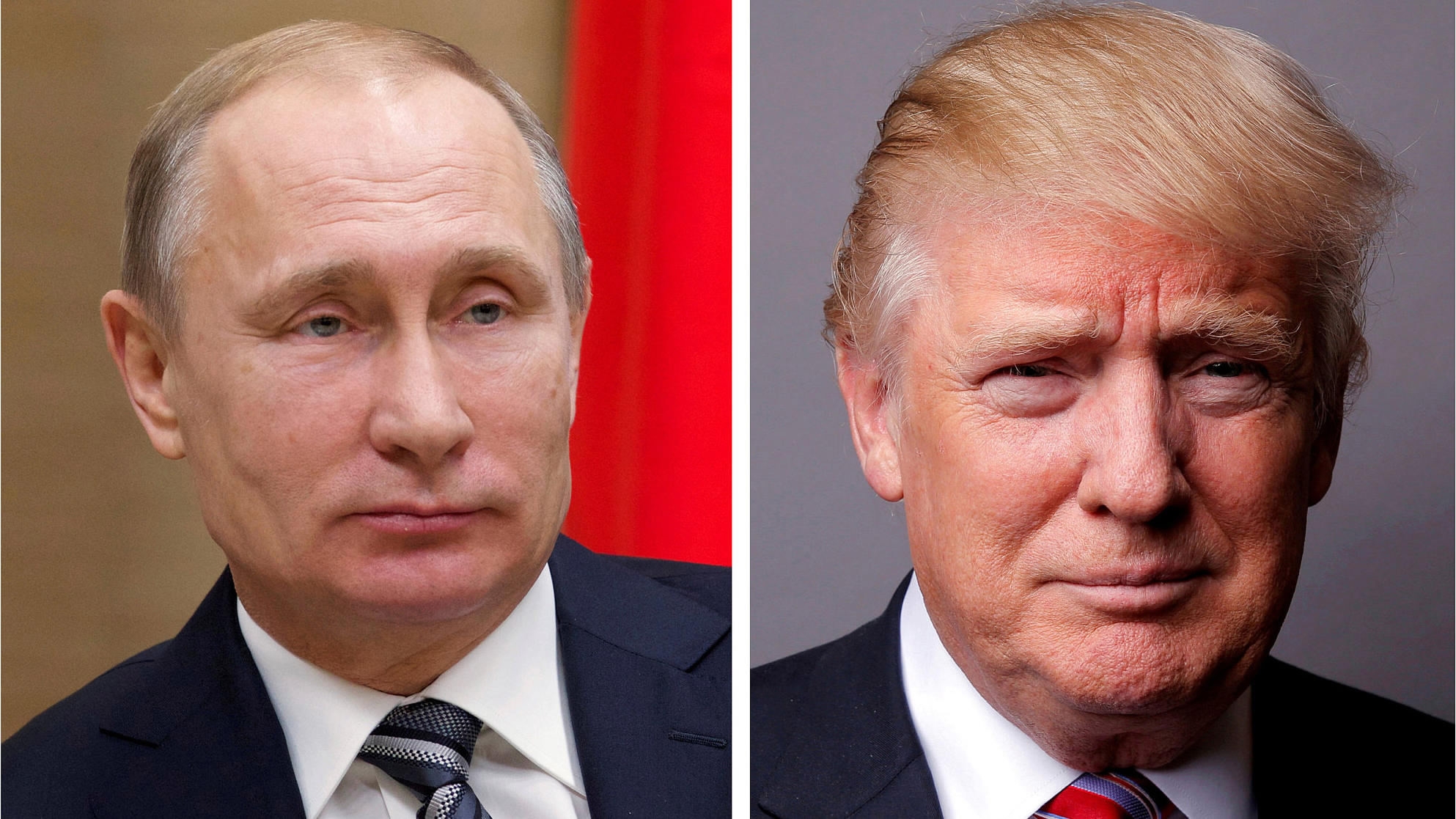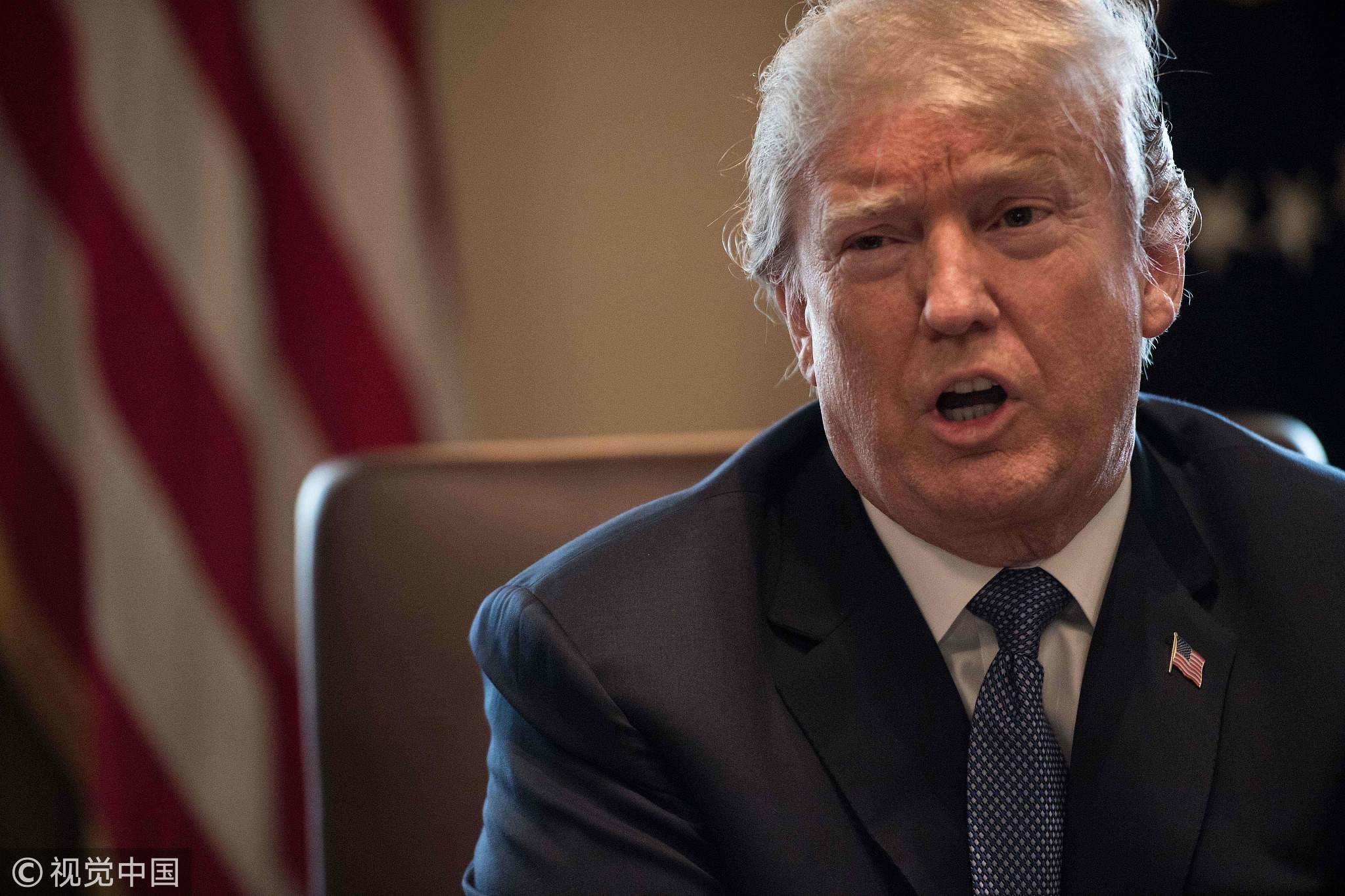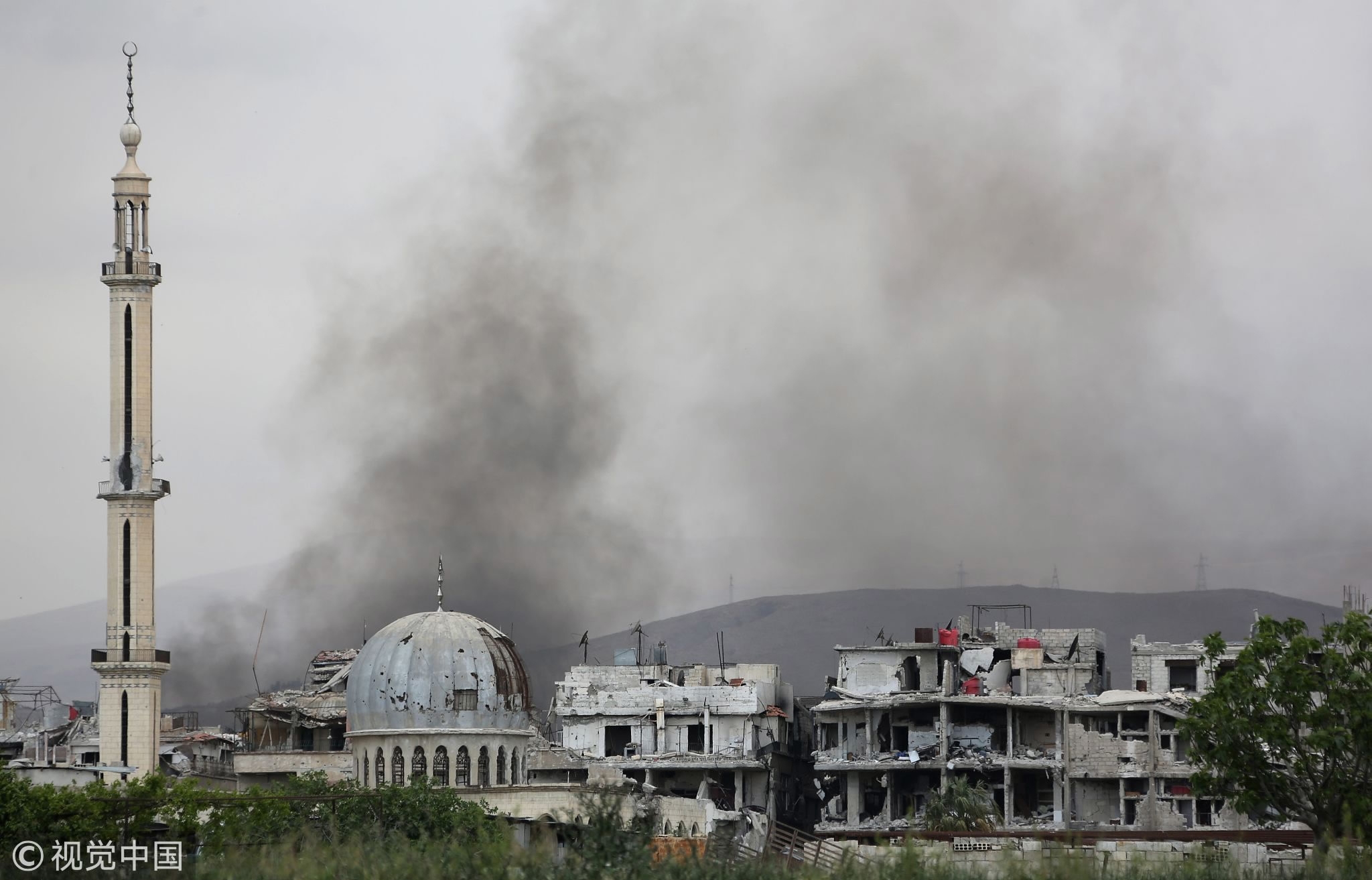
Opinions
22:31, 11-Apr-2018
Opinion: War between US and Russia in Syria? Possible, but not likely
Guest commentary by Wang Jin

US President Donald Trump met with his generals at the Pentagon and decided to skip the weekend trip to South America so that he can stay in Washington to focus on Syria. It seems that the situation in Syria is really serious for Trump and even made him change his itinerary. Trump also told Russia in an early morning tweet to prepare for “nice and new and ‘smart’!” missile strikes in Syria.
Chemical weapons used inside Syria's battlefield has always been a sensitive topic. On the one hand, the Syrian government has been alleging that chemical weapons were eliminated after 2013 with the help from the international society. On the other hand, there have been many reports about “chemical weaponry” incidents exposed by media and other NGOs during the past years, especially in the area of Eastern Ghouta, where the latest chemical weapons attack occurred. Washington has expressed concerns over chemical weapon incidents several times during the past years, and given the rhetoric of both Trump himself and the White House, Washington might put forward a concrete and clear plan over the latest Syrian chemical weapon incident.
What is interesting to observe about Trump’s decision over the Syria issue is his U-turn attitude. A couple of days ago, Trump was murmuring about a US withdrawal from war-torn Syria. However, the planned military action will no doubt keep US forces there for a longer period of time than he had previously desired. Trump’s different options in Syria comes from different audiences. His determination of withdrawal from war-torn Syria was highlighted when he spoke to the American public. According to Trump, Washington has spent too much money in Syria and it was not necessary anymore for the US to stay in Syria.

VCG Photo
VCG Photo
However, when it comes to the international level, especially when it comes to Washington’s relationship with its Middle East allies, especially Israel and Saudi Arabia, Trump has to show his resolve to constrain Iran’s regional expansion, especially in Syria. Trump’s consideration over the Syria issue is largely a result from the balance between pressure at home and pressure abroad, and a limited intervention and strike, like what occurred last year, might be the best option for him.
It is still unclear who should be responsible for the latest chemical weapon attacks. Trump has blamed Russia and Iran for backing the Assad's government that is responsible for the latest alleged chemical attack. But Russia said its experts found no trace of chlorine or any other chemical substance used against civilians. Moscow accused the US and its allies of trying to hurt Russia with a broad arsenal of methods, including slander, insults and hawkish rhetorics.
The chemical weapon attacks have been repeatedly occurring during the past years, and every time it occurred, each side, Syrian government and rebel groups accused the each other. Actually the most difficult task is how to investigate, given the sensitive security circumstances and fragile peace order in Eastern Ghouta area. What the international society needs to do right now is to organize an international investigation, rather than the slander and blames.

Smoke billows behind destroyed buildings in the former rebel-held town of Saqba in the Eastern Ghouta region on the outskirts of Damascus, April 10, 2018. / VCG Photo
Smoke billows behind destroyed buildings in the former rebel-held town of Saqba in the Eastern Ghouta region on the outskirts of Damascus, April 10, 2018. / VCG Photo
It has been reported that airlines have been alerted by Eurocontrol in Eastern Mediterranean region because of missile attacks that might launch in the next 3 days. It seems like a military strike is inevitable. However, Washington’s response in Syria might be too violent and assertive. On the one hand, military interventions were introduced by Trump into Syria and it is difficult to fundamentally change the landscape of Syria's battlefield. Syrian government forces have already occupied the favorable position compared to other rebel groups and Washington’s massive airstrikes should be coordinated with Moscow, in avoidance of direct military clashes with Russia.
During the missile attacks by Washington in Syria last year, the Russian military personnel received news and information from the US ahead of the attacks, the pre-strike information helped Russian military personnel withdraw from the targeted military airport. Although Washington and Moscow strongly blame each other, both Russia and US lack the intention to directly confront each other in Syria. The direct military conflicts are between Washington and Moscow in Syria, so therefore a war between the two giants might be possible, but not very likely.
(Wang Jin is a PhD candidate in School of Political Science of University Haifa, and a research fellow in Syria Research Center of Northwest University. The article reflects the author's opinions, and not necessarily the views of CGTN.)

SITEMAP
Copyright © 2018 CGTN. Beijing ICP prepared NO.16065310-3
Copyright © 2018 CGTN. Beijing ICP prepared NO.16065310-3